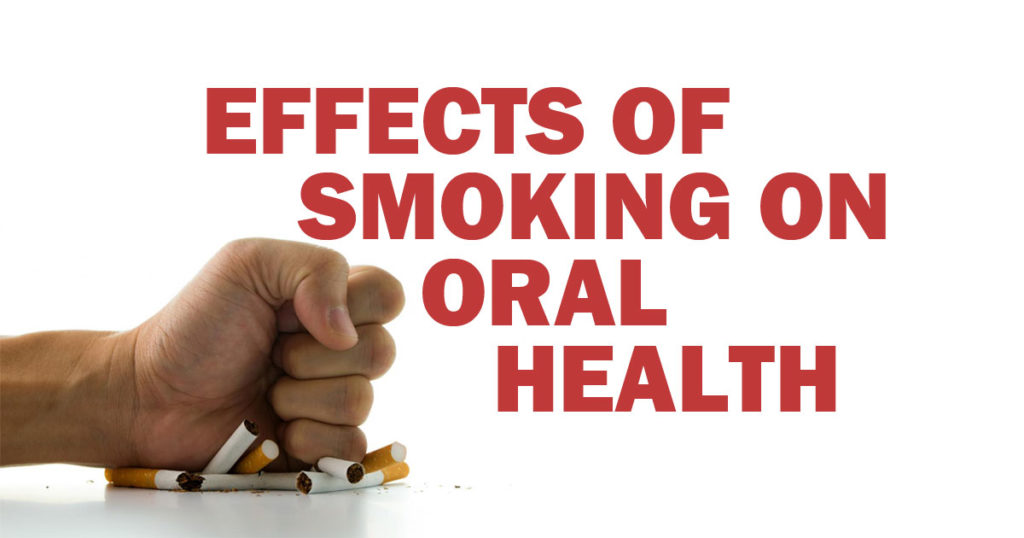
Chicago Lakeview Dentist Explains The Effect of Smoking on Oral Health
Most of us are aware that smoking and other tobacco products can lead to issues of the lungs and overall health problems. For this post, we are going to focus on the effect of smoking specifically on our oral health. Our mouth, gums, and teeth are all negatively impacted by tobacco use.
Common Oral Health Issues Associated with Smoking
Tooth Discoloration
Often the most visible sign of a smoker is yellowing or discolored teeth. In a very quick time, the nicotine and tar can be absorbed by your teeth and take them from white to yellow to brown. Nicotine itself is colorless but when combined with oxygen, it turns yellow. For smokeless tobacco, the tobacco mixes with the saliva and a dark brown liquid is created. This liquid often rests against the teeth for an extended period of time and is extremely staining to the enamel.
Bad Breath
When you inhale a cigarette, smoke particles are left behind in the throat, lungs, and mouth. This can stay in a smoker’s mouth for quite some time, leading to the stinky “stale smoker’s breath”. Smoking and tobacco use can also decrease saliva flow. Dry mouth or xerostomia can lead to a proliferation of bacteria that cause chronic bad breath.
Gum Disease
When using tobacco, plaque tends to accumulate near the gum line rapidly. This affects the attachment of the bone and gums to your teeth. Research shows that specifically smoking interferes with gum tissue cells. The body’s immune system is weakened and therefore makes it harder to fight off oral infections.
A few statistics from the CDC:
- Smokers are four times more likely to develop advanced gum disease than nonsmokers
- The more cigarettes smoked and the longer you smoke, the greater risk for gum disease
Decreased Success Rate of Dental Implants
Advanced periodontal disease can lead to bone deterioration. When this happens tooth loss or loose teeth can occur. A cosmetic procedure, such as dental implants, rely on having healthy, adequate bone in place to support the teeth. Since the immune system is also compromised, the healing rates tend to take longer in smokers than nonsmokers.
Increased Chances of Developing Oral Cancer
80% – 90% of all diagnosed oral cancers are attributed to tobacco use. Smokeless tobacco contains around 28 chemicals that have been directly linked to an increased risk of oral, throat and esophageal cancers. For oral cancer screenings in Chicago Lakeview please contact Belmont Dental Care.
Quitting Smoking
The best prevention tip from the above common dental issues is to quit smoking. Studies have shown that after 11 years of quitting smoking, a person can achieve good health and prevent gum diseases as if they hadn’t smoked at all. For any cases that one cannot fully quit smoking, reducing the intake could also significantly help as well. If you’re ready to quit and looking for guidance, the CDC has “Tips From Former Smokers” and our dental office can provide advice as well. To learn more about gum health and dental health risks, contact your local Chicago Lakeview Dentist, Belmont Dental Care.

